Women’s History Month – Heather Anne Johnson
Anna Guérin: Originator of the “Remembrance Poppy Day”
Anna Alix Guérin, née Boulle, was an independent woman, feminist, and humanitarian who devoted part of her life to raising funds for French widows and orphans, combatants, and victims of the Great War. Post-War, she established the American branch of a new French charity. Her main source of funds came from “Poppy Days”, which she set up across the U.S.A. from 1919 onwards. Throughout those years, she tirelessly raised money in the States which was transferred to the French government for distribution to various needy causes.
To understand how Anna arrived at her idea of the ‘Inter-Allied Poppy Day’ (the Remembrance Poppy Day), her whole life needs to be known. She was born into a Protestant family, in 1878, in Vallon[-Pont-d’Arc], France. She was brought up on a large farm and her education enabled her to pursue a career as a teacher. When she and her first husband, Paul Rabanit, moved to the French colony of Madagascar, she opened a school in Tamatave and it became one of the most successful there. Two daughters were born while Anna and Paul lived on the island of Madagascar.
After divorcing in 1907, Anna remarried in 1910 and became Madame Guérin. Anna’s second marriage was probably one of convenience, as Guérin was a judge who returned to his full-time duties in French African colonies and their paths rarely crossed. Anna began teaching through another medium to support her daughters: lecturing in the UK, for the international organisation Alliance Française. Her early lectures were about Madagascar but soon she began lecturing on famous French women, such as Joan of Arc, Marie Antoinette, and Josephine Bonaparte.
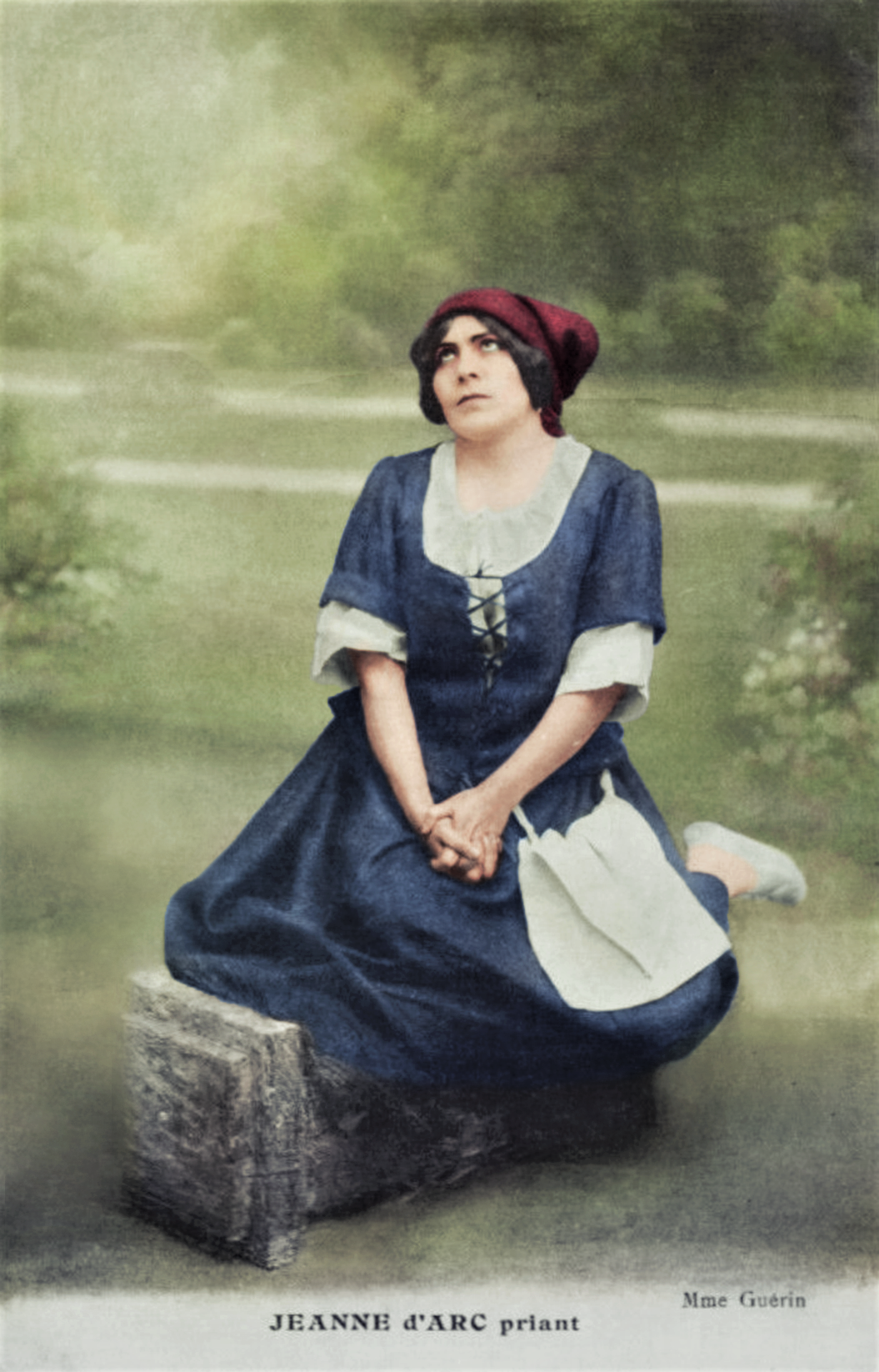
Very soon after the First World One began, Anna began lecturing for the Alliance Française in the United States of America. Discreetly, at the end of lectures, she raised money for those suffering in France. Once the U.S.A. entered the war, in April 1917, she became an official War Lecturer. She spoke for the American War Bonds, American Red Cross and many causes that would, ultimately, benefit France in its hour of need. She was described as “the greatest of all war speakers” – reviews described grown men crying when she spoke of the suffering in France.
The 1918 influenza pandemic cut short Anna’s tour that year and she was half-way across the Atlantic, returning to France, when the Armistice was signed. She thought her work was over but she was summoned to Paris and asked by the French government to return to America to form the American branch of a new charity. This was called ‘The American-Franco Children’s League’ initially. Monies raised in the U.S.A. were to be sent to Paris to be distributed.
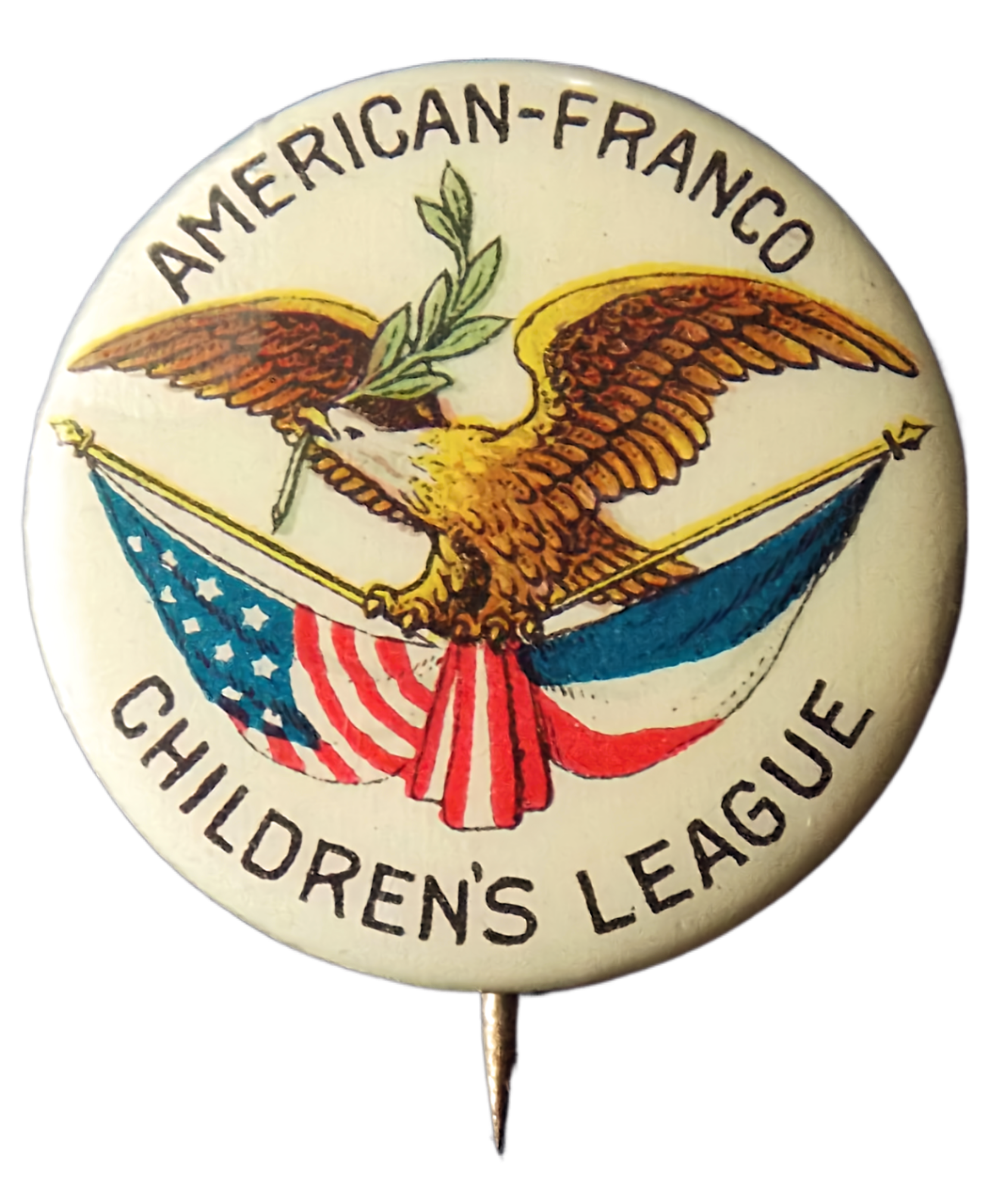
Anna’s League aimed to provide assistance to desperate French children and promote the existing friendship between America and France. She formed a League committee in each State she visited. Prominent people became members of her committees. As each State Committee was established, Anna advised on how to recruit fee paying members and organise “Poppy Days”. In speeches, she often recited the famous poem by Canadian John McCrae “In Flanders Fields the Poppies Grow”. Anna’s poppy sellers wore white sashes bearing those words in red.
Anna campaigned in a blue-grey tailored suit with matching hat, styled on the uniform of the French Chasseurs Alpins soldiers. In 1920, she thought of a big idea, the ‘Inter-Allied Poppy Day’: women and children in the devastated areas of France would be paid to make the poppies, which would help families get back on their feet; veterans’ organisations would be able to order poppies at a wholesale price, which included a small amount for Anna’s charity; and the organisations would keep the profit, to help fund their important work supporting veterans and their families.
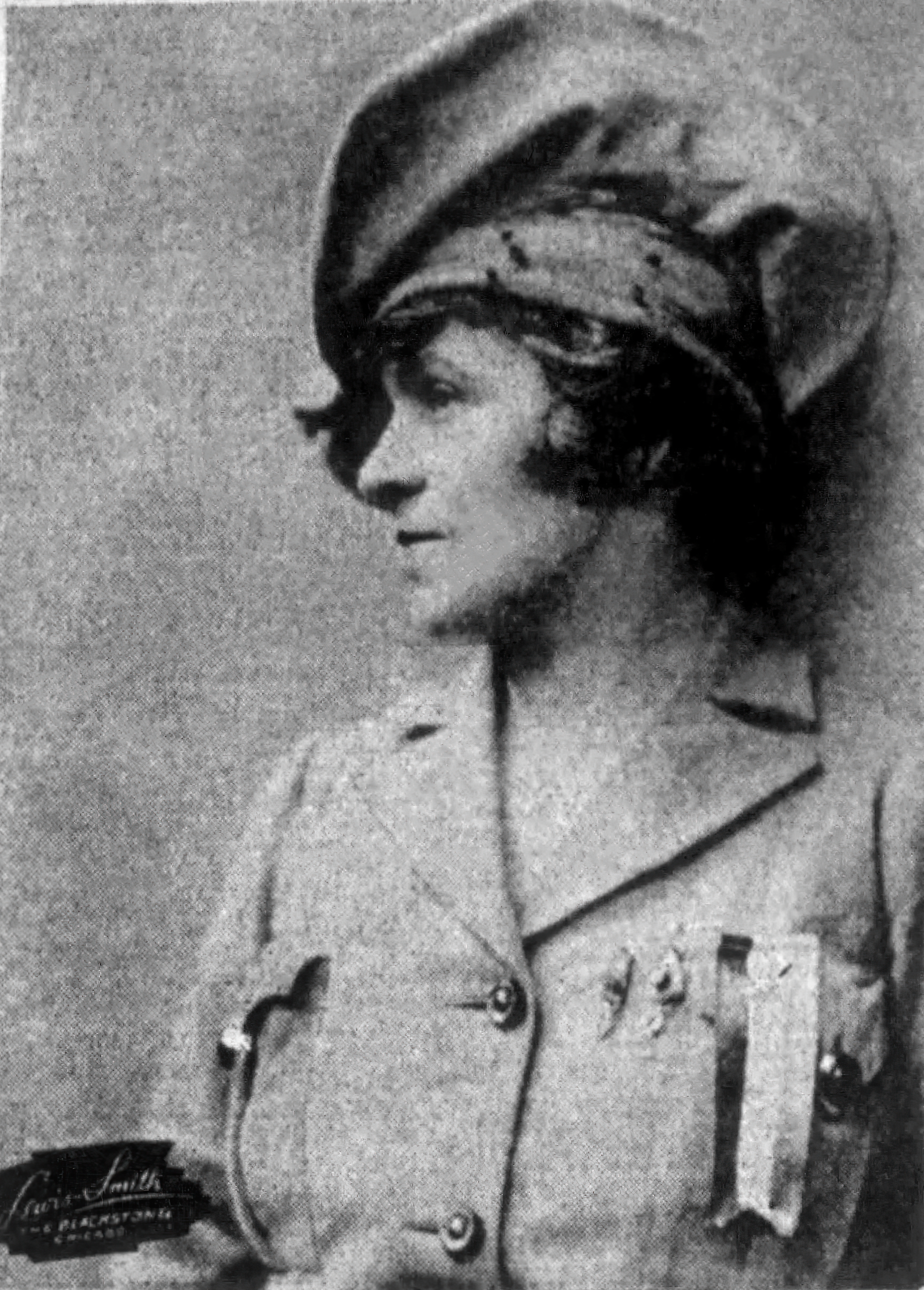
Anna was invited to explain her idea at the American Legion’s Convention in 1920. The Legion adopted the poppy as a memorial emblem and committed to support Anna with her “Poppy Days”. The Legionnaires named Anna ‘The Poppy Lady of France’. In May 1921, Anna’s League held the world’s first nation-wide “Poppy Day”, ahead of America’s Memorial Day. Anna then took her idea to Canada in 1921, where the Great War Veterans’ Association adopted it. The Canadian veterans were the first of the Empire (now the Commonwealth) to do so.
That same year, while Anna’s representative was successfully taking the “Poppy Day” idea to New Zealand, Australia, and South Africa, she visited the British Legion in London, of which Earl Haig was President. The British Legion also adopted Anna’s “Poppy Day” idea. Because the British Legion was poor, Anna financed its order of French poppies and was reimbursed after the first British “Remembrance Poppy Day”, on 11 November 1921: Haig’s ‘Remembrance Day’.
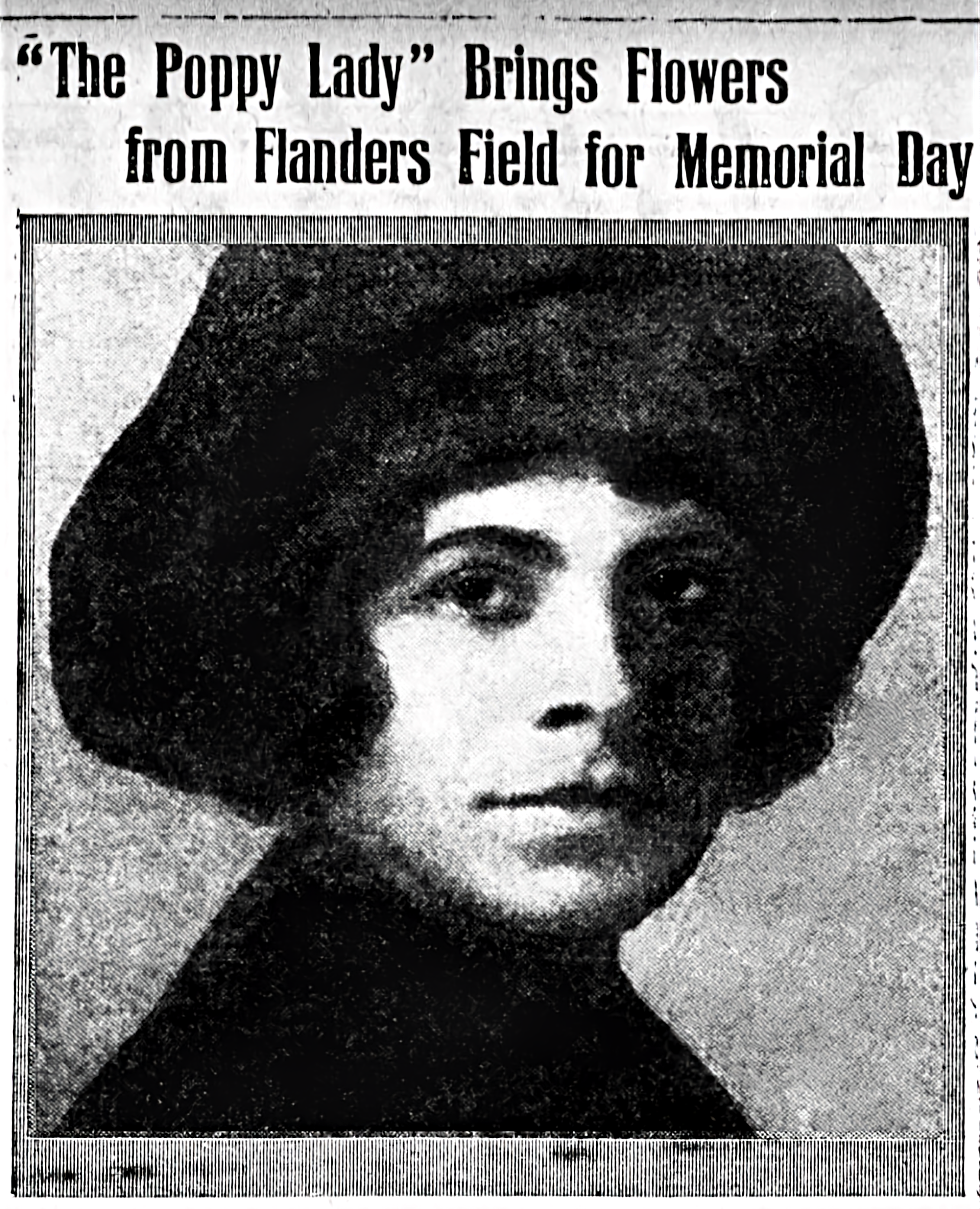
Eventually, each allied country made their own arrangements – some remained loyal to Anna longer than others. Their own veterans made the poppies. Remembrance Poppy Appeals continue to be held throughout the British Commonwealth. The USA holds them to a much lesser degree. The poppy has become a symbol of commemoration and hope for veterans and their dependents. As Byng of Vimy said, ‘Honour the dead by helping the living’. This is Anna Guérin’s legacy.
In 1921, Anna was well-known in English-speaking Allied countries for her years of humanitarian work and known as the “Originator of the Remembrance Poppy Day”. Over time, her place in history became lost. My quest is to have her emerge from the shadows and, now, there are others committed to do the same. It is hoped that this book brings her into the spotlight even more.
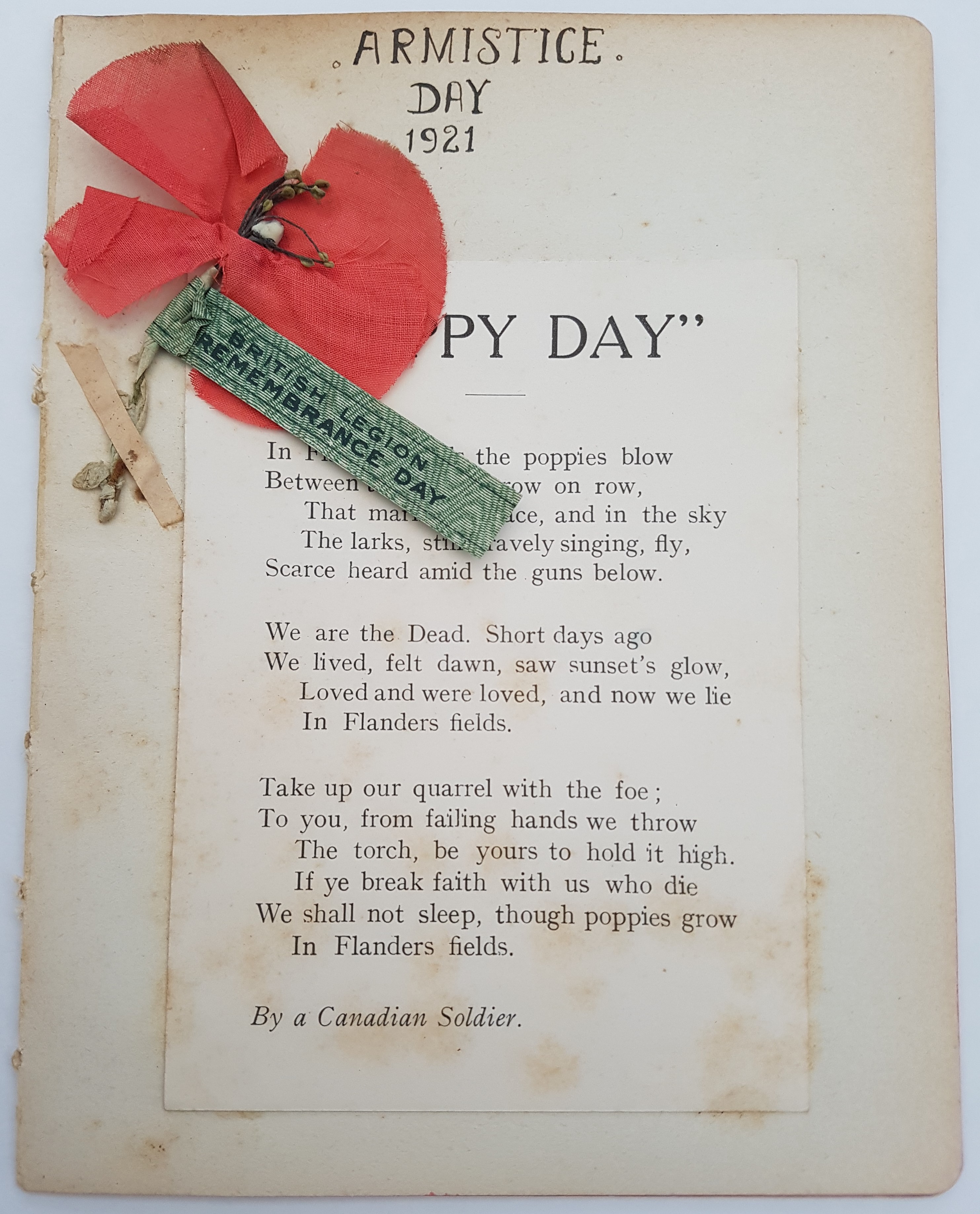
……………………………………………………………….

The Poppy Lady is available to order here.

